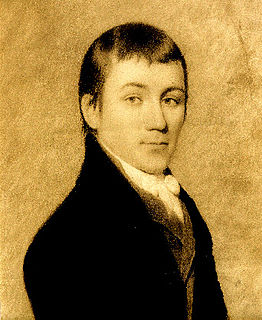A Quote by Francois de La Rochefoucauld
When we exaggerate our friends' tenderness towards us, it is often less from gratitude than from a desire to exhibit our own virtue.
Related Quotes
A prayerful life is the key to possessing gratitude. We often take for granted the people who most deserve our gratitude. Let us not wait until it is too late for us to express our gratitude. Feeling gratitude and not expressing it is like wrapping a present and not giving it. If I gratitude be numbered among the serious sins, then gratitude takes its place among the noblest of virtues. To express gratitude is gracious and honorable, to enact gratitude is generous and noble, but to live with gratitude ever in our hearts is to touch heaven.
Why is discipline important? Discipline teaches us to operate by principle rather than desire. Saying no to our impulses (even the ones that are not inherently sinful) puts us in control of our appetites rather than vice versa. It deposes our lust and permits truth, virtue, and integrity to rule our minds instead.
When we become more fully aware that our success is due in large measure to the loyalty, helpfulness, and encouragement we have received from others, our desire grows to pass on similar gifts. Gratitude spurs us on to prove ourselves worthy of what others have done for us. The spirit of gratitude is a powerful energizer.
On this Thanksgiving, as we spend time with our family and friends, let's all reflect on what we're thankful for in our own lives. And let's remember those who cannot be with their loved ones because they're serving overseas. But let's also do our part to help those who have no place to go for a meal. I encourage all Americans to do what they can to help those in need-because the best way to show our gratitude for what we have is by doing our part for those who have less.
Women believe -- or at least often pretend to believe -- that all our tenderness for them springs from desire; that we love them when we have not for a time enjoyed them, and dismiss them when we are sated, or to express it more precisely, exhausted. There is no truth in this idea, though it may be made to appear true. When we are rigid with desire, we are apt to pretend a great tenderness in the hope of satisfying that desire; but at no other time are we in fact so liable to treat women brutally, and so unlikely to feel any deep emotion but one.
A grateful heart, then, comes through expressing gratitude to our Heavenly Father for His blessings and to those around us for all that they bring into our lives. This requires conscious effort-at least until we have truly learned and cultivated an attitude of gratitude. Often we feel grateful and intend to express our thanks but forget to do so or just don't get around to it. Someone has said that "feeling gratitude and not expressing it is like wrapping a present and not giving it."
Before making peace, war is necessary, and that war must be made with our self. Our worst enemy is our self: our faults, our weaknesses, our limitations. And our mind is such a traitor! What does it? It covers our faults even from our own eyes, and points out to us the reason for all our difficulties: others! So it constantly deludes us, keeping us unaware of the real enemy, and pushes us towards those others to fight them, showing them to us as our enemies.


































